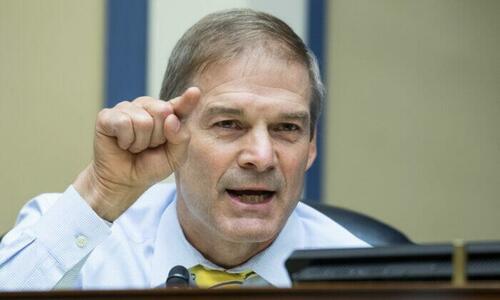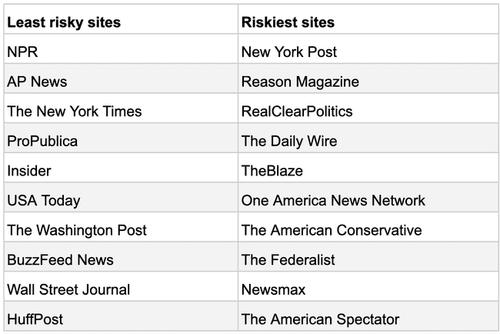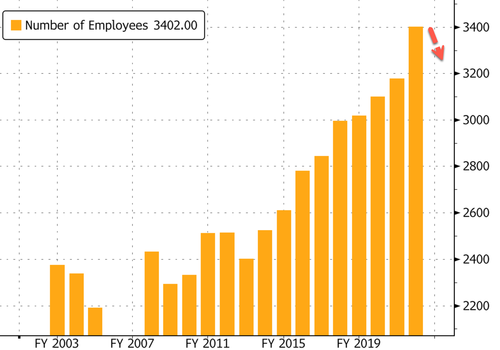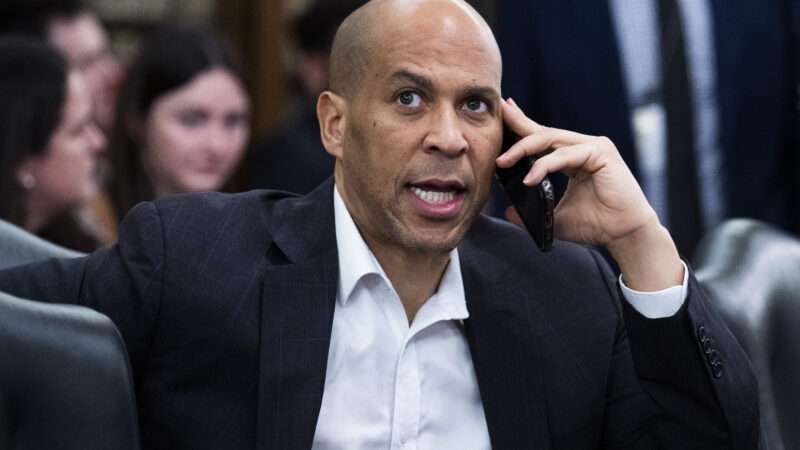
Ever since the 69-year-old conspiratorial activist Robert F. Kennedy Jr. declared his candidacy for the Democratic presidential nomination last week, a curious new category has appeared among the commentariat—libertarians and/or right-of-center journalists expressing strange new respect for a Hugo Chavez–admiring scion of the Establishment who has serially fantasized about throwing his political opponents in jail.
“I’m quite certain that I’ve never heard a more erudite speech in any political context,” enthused Brownstone Institute President Jeffrey Tucker after attending Kennedy’s announcement rally. “As [a] Democrat he must be bad on all sorts of things,” tweeted Antiwar.com’s Scott Horton, “But not the ones that matter the most.” The Libertarian Party of Colorado tweeted (and then deleted) “Bravo and godspeed hero.” Tablet, a publication not usually known for boosting overheated analogies to murderous 20th-century totalitarians, gave RFK Jr. an 18,000-word valentine with such soft-toss “questions” about his previous controversial statements (like terming the impact from childhood vaccines “a holocaust“) as: “You activated an automated outrage machine that was looking for a gotcha.”
The newly Kennedy-curious are intrigued by the rabble-rouser’s potential to disrupt an otherwise rubber-stamped Democratic primary, sure, but also by him having the right enemies—the media, the military-industrial complex, and, most of all, a political class that backed COVID-19 lockdowns and mandates.
“Just as Donald Trump…retrieved political themes from the deep past of the Republican Party,” National Review‘s Michael Brendan Dougherty mused, “so it must be that a Democrat should come along and try to revive left-leaning skepticism of government and corporate power, to denounce crony capitalism, censorship, and the CIA to boot.”
Recasting RFK Jr. as a foe of censorship and potential tamer of government requires ignoring what he has been and imagining things he’ll never be. Among a lifetime of eyebrow-raising public activities, Bobby Kennedy’s son has repeatedly egged on government to punish those who disagree with his idiosyncratic understandings of science.
Here he is in a September 2014 interview, for example, arguing that billionaire industrialists/philanthropists/political donors Charles Koch and his then-still-alive brother David Koch (both of whom donated to the Reason Foundation over the years) “should be in jail…enjoying three hots and a cot at The Hague with all the other war criminals” and that politicians who agree with the Kochs about global warming are “contemptible human beings” of whom he “wish[ed] that there was a law that you can punish them under”:
After this lock-’em-up interview drew criticism (including from National Review‘s Charles C.W. Cooke, who described it as “a sure sign of mental imbalance, and a gold-leafed invitation to be quietly excluded from polite society”), Kennedy came out with a clarification removing from his prosecutorial crosshairs most of the individual “climate-deniers,” but stressing that “corporations which deliberately, purposefully, maliciously and systematically sponsor climate lies should be given the death penalty.”
How would one pull off such a thoroughgoing trample of the First Amendment? Through the bold and vigorous exertions of government law enforcement. State attorneys general who have “particularly potent glands” and “the will, resolve and viscera to stand to up to the dangerous and duplicitous corporate propagandists,” Kennedy wrote in a piece headlined “Jailing Climate Deniers,” could “annul the charters of each of these mercenary merchants of deceit” and then “withdraw state operating authority from the soulless, nationless oil companies that have sponsored ‘Big Lie’ campaigns and force them to sell their in-state assets.”
He then helpfully provided a kill list: Koch Industries, ExxonMobil, and the American Petroleum Institute, of course, plus
the Cato Institute, The Heritage Foundation, Cooler Heads Coalition, Global Climate Coalition, American Legislative Exchange Council (ALEC), Americans for Prosperity, Heartland Institute, Committee for a Constructive Tomorrow (CFACT), George C. Marshall Institute, State Policy Network, Competitive Enterprise Institute (CEI) and American Enterprise Institute (AEI).
“These front groups,” he charged, “are snake pits for sociopaths.” (Kennedy’s denunciations of his political adversaries, then, now, and a quarter century ago, have been nothing if not florid.)
Alas, this episode was not some momentary anti-speech glitch in RFK Jr.’s otherwise civil libertarian matrix. At Al Gore’s 2007 Live Earth rally in New Jersey, he urged the audience to “get rid of all of these rotten politicians that we have in Washington D.C. —who are nothing more than corporate toadies for companies like Exxon and Southern Company, these villainous companies that consistently put their private financial interest ahead of American interest and ahead of the interest of all of humanity. This is treason and we need to start treating them now as traitors.”
Treason in the United States is punishable by death. In his 2014 interview, Kennedy wished such a prosecution on the Kochs: “Do I think the Koch Brothers are treasonous? Yes, I do.” At least when it came to notorious coal executive Don Blankenship in 2009, RFK Jr. limited his preferred sentencing to “jail…for all of eternity.”
Yet in 2023, Kennedy can plausibly claim (to those with short memories) the mantle of anti-censorship, for having been on the receiving end of Big Social Media’s often government-pressured pandemic speech-policing. He was banned from Instagram in February 2021 “for repeatedly sharing debunked claims about the coronavirus or vaccines,” and his anti-vaccine-mandate nonprofit Children’s Health Defense was similarly booted by both Instagram and Facebook in August 2022. He published a book last year called A Letter to Liberals: Censorship and COVID: An Attack on Science and American Ideals. As Tablet‘s David Samuels wrote, in one of that piece’s many eye-popping passages, “At this point, the fact that Robert F. Kennedy is the country’s leading ‘conspiracy theorist’ alone qualifies him to be president.”
So is the enemy of your enemy your friend? Depends on your tolerance for unlikely conspiracy theories, and your comfort level in Kennedy’s proposed punishments for alleged perpetrators. Where Jeffrey Tucker sees an orator with a “command of facts, history, and issues,” motivated both by “truth-telling in an age of nonstop lies” and a genuine urge to “heal” the political divide, I see someone whose presentation of facts—including grave accusations of criminality—have been repeatedly and persuasively found lacking.
When Kennedy alleged in a long 2006 Rolling Stone piece that the 2004 presidential election was stolen, for example, he accused the GOP of “outright fraud” and of employing “a wide range of illegal and unethical tactics to fix the election,” particularly in the critical swing state of Ohio. Election fraud is a serious federal crime, one that the Republican Party in this case was not guilty of, according to assessments of RFK Jr.’s case in U.S. News & World Report, Cleveland magazine, and Salon.com.
Wrote Farhad Manjoo at the latter: “I scoured his Rolling Stone article for some novel story or statistic or theory that would prove, finally, that George W. Bush was not the true victor. But nothing here is new…. If you do read Kennedy’s article, be prepared to machete your way through numerous errors of interpretation and his deliberate omission of key bits of data.”
In a long 2003 Atlantic article describing the murder conviction of his cousin Michael Skakel for the brutal golf-club beating of teenager Martha Moxley in Greenwich, Connecticut, as a “media lynching” and “miscarriage of justice,” Kennedy said the state’s case would have been “stronger” against a mentally ill drifter. In his 2016 book Framed: Why Michael Skakel Spent Over a Decade in Prison for a Murder He Didn’t Commit,” Kennedy straight-up accused two other men (one black, the other mixed-race) of having committed the murder as visiting teenagers from lower Manhattan because they were “obsessed” with Moxley’s “beautiful blond hair” and so decided to go “cave man” on her.
“There is nothing as devastating as being called a murderer,” one of them said in 2016 to reporter Leonard Levitt, who has reported on the case extensively. “I keep my curtains drawn so people can’t look inside. I can’t sit out in my backyard. My wife gets physically sick whenever this comes up. I don’t want to be near anyone with a camera.” Retorted RFK: “Let them sue me.” (In his detailed takedown of Framed, Levitt concluded: “Where is it written that a person of privilege and entitlement with a famous name can write lies about innocent people without consequence?”)
Kennedy’s readiness to embrace baroque explanations for seemingly adjudicated events extends to the assassination of his own father: He doesn’t think Sirhan Sirhan did it (much to his family’s chagrin). This despite the Palestinian communist’s admissions of responsibility and expressions of remorse, including to Kennedy himself, over the years. (Bobby Jr. believes the culprit was the late Thane Eugene Cesar, a right-wing, probably racist rent-a-bodyguard on the scene who “was also a CIA asset,” Kennedy told Tablet.)
RFK Jr.’s tentative new cheering section on the right typically makes the rhetorical move of reducing his critics to anti-anti-vaxxers who feel anger at how he has discredited their cherished Lockdown Liberalism. For instance, The American Spectator‘s Daniel J. Flynn:
Journalists representing outfits with the strongest ties to the Biden administration look upon his quixotic bid as a real threat and act accordingly. In headlines, he morphed from a man into an “anti-vaccine activist” (CNN) and “vaccine critic” (Reuters). A headline in the New York Times on the eve of his announcement read: “Robert F. Kennedy, Soon to Announce White House Run, Sows Doubts about Vaccines.”
Democrats, in their headlines, demonstrate the degree to which their party’s cult of Kennedy became a cult of COVID.
Why yes, a man with a vaccine-skeptical nonprofit and a best-selling 2021 book titled “The Real Anthony Fauci: Bill Gates, Big Pharma, and the Global War on Democracy and Public Health” might indeed be described in journalistic shorthand as a “vaccine critic.” But as the above examples, his past quarter-century of public life, and his daily behavior on the campaign trail illustrate, Kennedy is above all an activist who makes totalizing and not-infrequently bizarre statements about the awesome malevolent power of whatever forces he is lining up against.
So though there are a handful of obvious and multi-sourced reasons why Fox News decided to part ways with Tucker Carlson, RFK quickly found the real killer: “Fox fires @TuckerCarlson five days after he crosses the red line by acknowledging that the TV networks pushed a deadly and ineffective vaccine to please their Pharma advertisers,” he tweeted. “Carlson’s breathtakingly courageous April 19 monologue broke TV’s two biggest rules: Tucker told the truth about how greedy Pharma advertisers controlled TV news content and he lambasted obsequious newscasters for promoting jabs they knew to be lethal and worthless.”
Robert Kennedy Jr.’s candidacy is already a more serious proposition than those of former President Donald Trump’s would-be 2020 challengers Bill Weld, Mark Sanford, and Joe Walsh. In two national polls released Thursday, RFK Jr. averaged 20 percent, with fringe 2020 Democratic candidate Marianne Williamson clocking in at an impressive-for-her 8.5 percent. Surely, incumbent President Joe Biden has significantly less hold on his party’s electorate than Trump did on his; most likely, the recognizable last name hasn’t hurt Kennedy.
As someone foursquare in favor of more political competition, I am heartened to see Old Joe get a run for his money. But it would take more than semi-alignment on a couple of issues to get me excited about anyone who has ever suggested countering political speech with prison.
The post The Very Strange New Respect for Authoritarian Democrat Robert F. Kennedy Jr. appeared first on Reason.com.
from Latest https://ift.tt/hiCwMnd
via IFTTT









